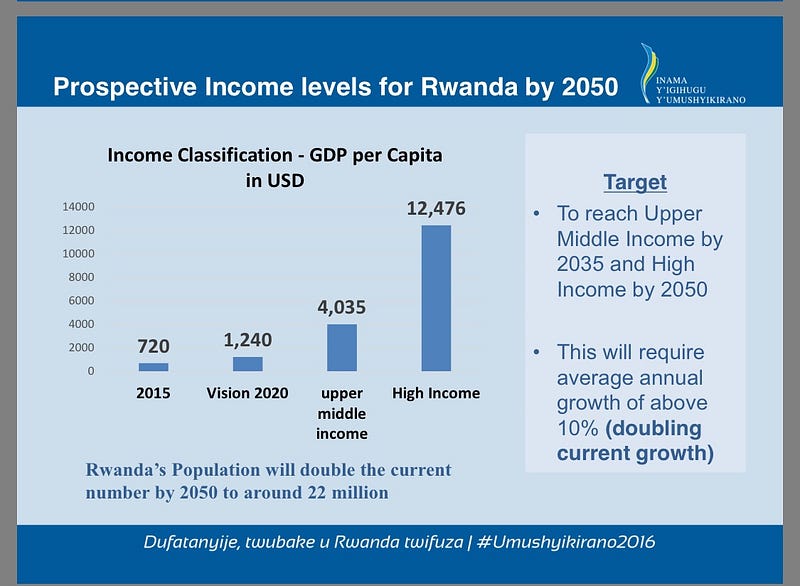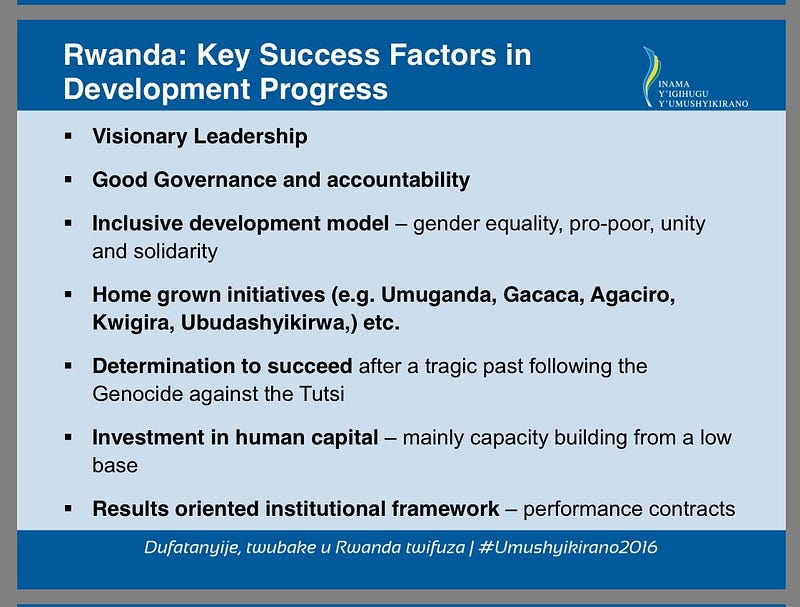Vision 2050 Was Motivated By The Desire To Cover-Up The Failure Of Vision 2020
Rwanda’s head of state, General Paul Kagame, launched Rwanda Vision 2050 in 2016. The timing was bizarre. Vision 2020 which was the previous milestone for achieving a middle-income status was still four years away. Little, if any, was said of what became of Vision 2020 — it was simply swept under the rug. The reason for this dishonesty and policy thuggery is clear. Kagame and his regime realized that they would not achieve Vision 2020. The regime recently conceded as much to the IMF by admitting that Rwanda would not achieve the middle income status for another 17 years. As the IMF reported in January 2018,
“the [Rwandan] authorities are crafting a revised medium term development strategy with the goal of achieving middle income status by 2035.”
So What Exactly Does The So-Called Vision 2050 Aim To Achieve?

When launched in 2016, Vision 2050 claimed that Rwanda would reach upper middle income by 2035, with a per capita income of US$4,035. And that Rwanda would become a high-income nation with a per capita income of US$12,476.
Embarrassingly, the regime conceded to the IMF in January 2018 that Rwanda would only reach the lower middle income in 2035, as noted above. In other words, Rwanda Vision 2050 is a non-starter.
What Are The So-Called Success Factors For The Successful Implementation Of Vision 2050?

As can be seen from the above shopping list of “key success factors in development progress,” there is hardly anything new that distinguishes Vision 2050 from the failed Vision 2020. For example, where will a ”visionary leadership” come from — it is the same dictatorship that has ruled Rwanda since 1994 in different guises. Further, the same regime will remain in power until 2034, as per 2015 Rwandan constitution. Governance is the same story. The same actors and bureaucracy will be in charge of the state.
If Vision 2050 Were Not Fake, It Would Be Based On A Genuine Assessment Of Why Vision 2020 Failed
Effective leadership necessarily entails taking stock, learning, changing, and adapting. Good leadership examines failure analytically — indeed, curiously — to learn from failure. What went wrong? What factors might have resulted in better outcomes? It is by asking such questions that some newfound insights emerge and therefore provide the basis for going forward on a more sound basis.
I am reminded of Albert Einstein’s definition of “insanity” which is doing the same thing over and over again and expecting different results. The regime that presided over the failed Vision 2020 is the very regime that is promising to make Rwandans very rich in 32 years by doing exactly the same things. That is insane indeed.





























































